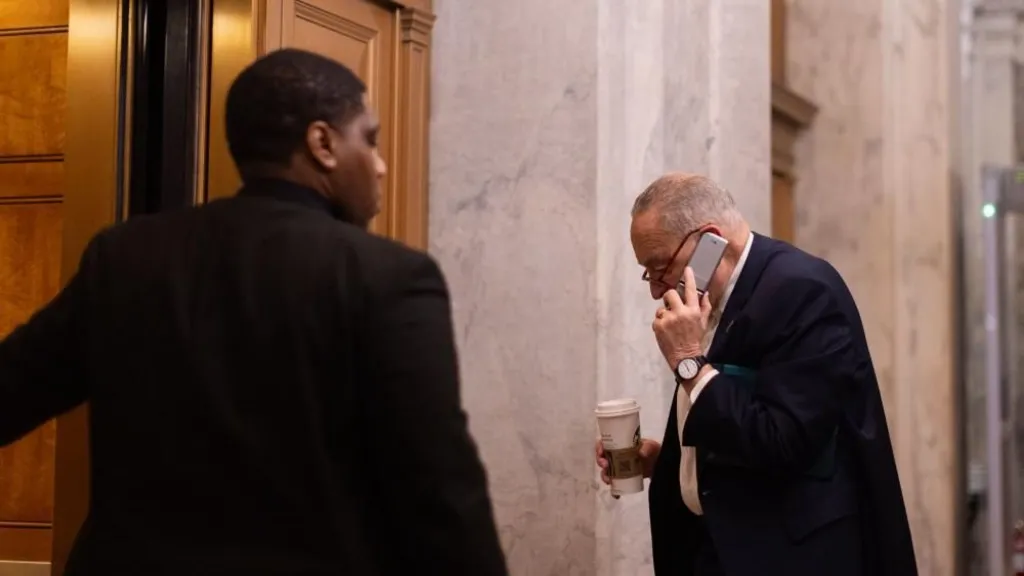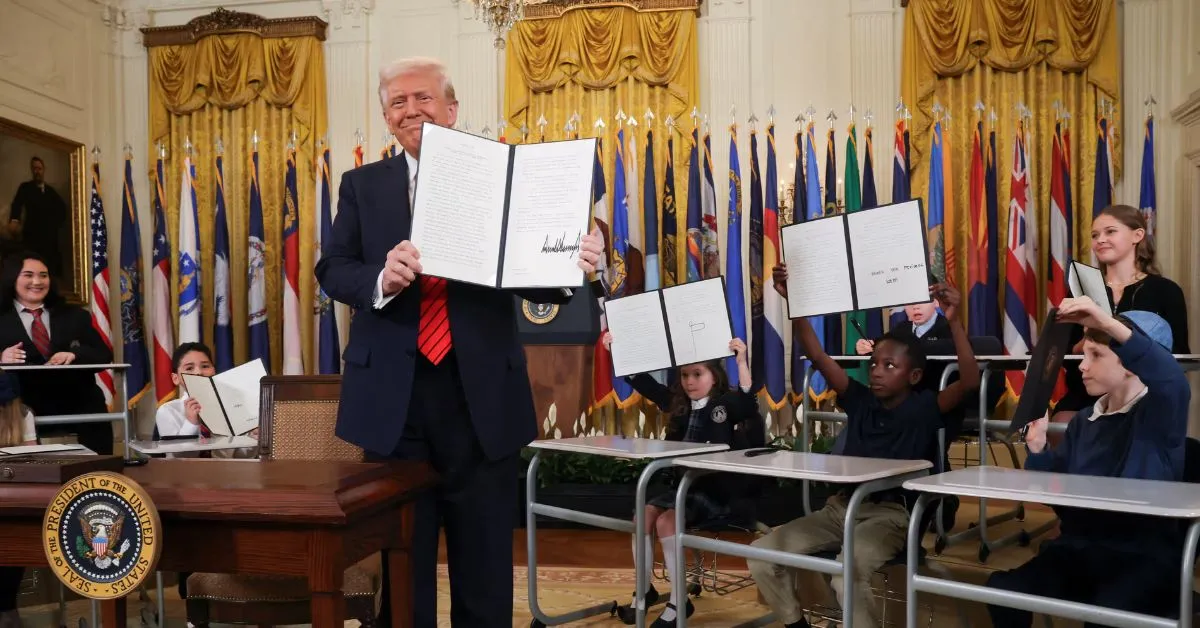Schumer Backs GOP Bill, Averts Shutdown Amid Democratic Backlash
On Friday, Senate Democratic Leader Chuck Schumer GOP Bill found himself in an uncomfortable and politically charged position. While President Donald Trump publicly praised him, prominent Democrats, including former House Speaker Nancy Pelosi, House Minority Leader Hakeem Jeffries, and others, expressed frustration, disappointment, and even outrage toward him. This tension arose after Schumer decided to support a Republican-crafted bill aimed at preventing a potential U.S. government shutdown.
Schumer’s decision to back the bill marked a significant moment in the ongoing political battle over government funding. Alongside nine other Democrats and nearly all Republicans, Schumer voted to advance the legislation, which later passed the Senate. The bill included several provisions that angered liberal lawmakers and activists, such as cuts to non-military programs, increased funding for border security, restrictions on Congress’s ability to reverse Trump’s tariffs, and stringent limits on Washington, D.C.’s budget.
Despite these controversial elements, Schumer defended his support for the bill, arguing that allowing a government shutdown would have been far more damaging. A shutdown would have given President Trump the authority to decide which government services and employees to suspend, potentially causing widespread disruption and harm.
“I believe this is the best way to minimize the harm that the Trump administration could inflict on the American people,” Schumer said on Friday. “Allowing Donald Trump to gain even more power through a government shutdown is a far worse option.”
Democratic Backlash and Internal Division
Schumer’s decision did not sit well with many in his own party. Almost immediately after his announcement, criticism began pouring in from fellow Democrats. Nancy Pelosi, who remains a influential figure among House Democrats despite stepping down from her leadership role, condemned the bill as a “false choice” between a shutdown and accepting Republican demands.
“We must fight back in a better way,” Pelosi said, suggesting that a short-term funding extension and renewed bipartisan negotiations would have been a more effective approach. She described the Republican bill as a “blank check” that would harm working families across the country.
House Minority Leader Hakeem Jeffries, meanwhile, avoided directly addressing Schumer’s decision during a press conference. When asked if he still had confidence in Schumer’s leadership, Jeffries tersely replied, “Next question.”
Other Democrats were less reserved in their criticism. Senator Raphael Warnock of Georgia hinted at the need for new leadership in the Senate after the next election cycle, while a group of 60 House Democrats sent a letter to Schumer expressing their disapproval. In the letter, they argued that the legislation “potentially legitimizes President Trump and the Republican Party’s dismantling of government.”
“If Republicans in Congress want to pass this bill,” they wrote, “they should do so with their own votes.”
Trump’s Praise and Republican Momentum GOP Bill
Adding to the Democrats’ frustration, President Trump took to his Truth Social platform to praise Schumer’s decision. He called it a “good and smart move” and hinted at more Republican-led legislation on taxes, spending, and other issues.
“This could lead to something big for the USA,” Trump wrote. “A whole new direction and beginning!”
Trump’s comments only deepened the divide within the Democratic Party, as many saw his praise as evidence that Schumer had played into Republican hands.
The Shutdown Dilemma
While many rank-and-file Democrats and liberal activists urged Schumer to block the bill—even if it meant triggering a government shutdown—it’s unclear whether such a move would have pressured Republicans to negotiate a less partisan funding plan. Some Republicans, including figures like Elon Musk, seemed eager to use a shutdown as an opportunity to further weaken the federal government.
A prolonged shutdown could have disproportionately affected Democratic supporters, leaving the party in a difficult position with limited power and few good options. As left-leaning commentator Matthew Yglesias noted, opposing the bill without a clear strategy to achieve Democratic goals risks leaving the party in the same powerless position.
“Neither House Democrats nor the people voting ‘no’ in the Senate nor the people getting mad on Twitter have an actual strategy for getting what the base wants,” Yglesias wrote.

The Broader Political Landscape
Schumer’s decision highlights the challenges Democrats face in a divided Congress. While they have the power to block Republican legislation, they lack the votes to advance their own alternatives in either the House or the Senate. This dynamic has left Democrats struggling to navigate a political landscape where Republicans, united in their agenda, continue to push their priorities.
The 2024 election results have further complicated matters, leaving Democrats in a weakened position. As Republicans stick together to exert their will in Congress and Trump continues to expand presidential authority, Democrats are left with limited influence and few viable paths forward.
In the end, Schumer’s support for the Republican bill underscores the difficult choices Democrats must make in a deeply polarized political environment. While his decision may have averted a shutdown, it also exposed the deep divisions within the party and the challenges of governing in an era of intense partisanship.
As the saying goes, elections have consequences—and the 2024 results have left Democrats searching for a way out of the political wilderness.
FAQs
Why did Schumer support the GOP bill?
Schumer backed the GOP bill to avoid a government shutdown, which he believed would cause greater harm to the American people and give President Trump more control over government operations.
What were the key elements of the GOP bill?
The bill included cuts to non-military programs, increased border security funding, restrictions on reversing Trump’s tariffs, and limits on Washington, D.C.’s budget—provisions that angered many Democrats.
How did Democrats react to Schumer’s decision?
Many Democrats, including Nancy Pelosi and Hakeem Jeffries, criticized Schumer, arguing that the bill harmed working families and legitimized Trump’s agenda.









Post Comment